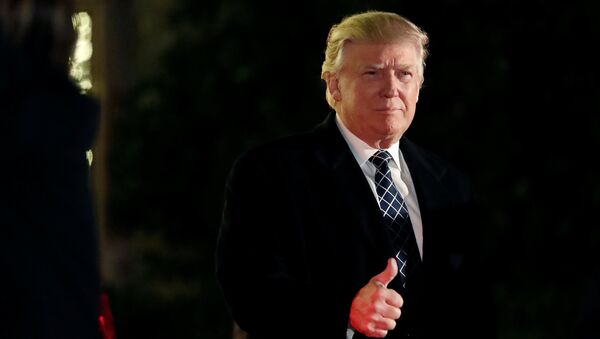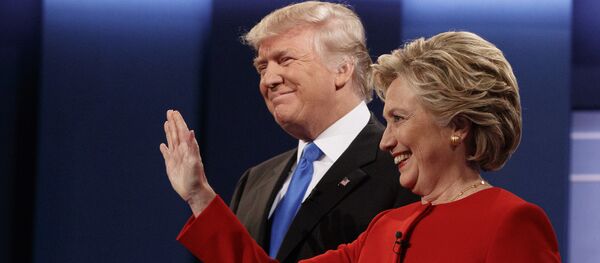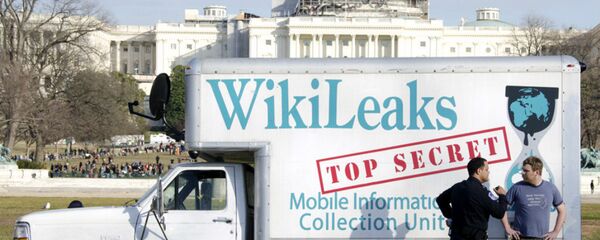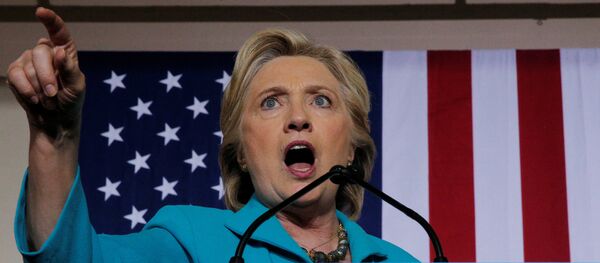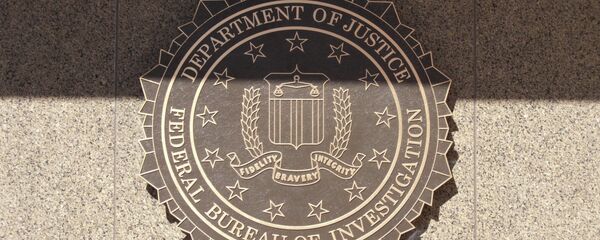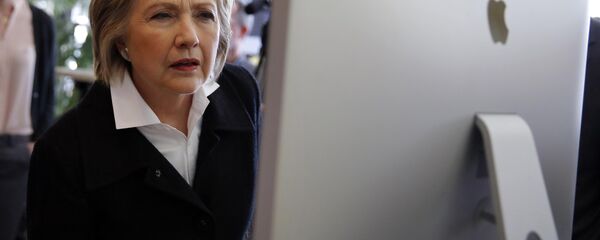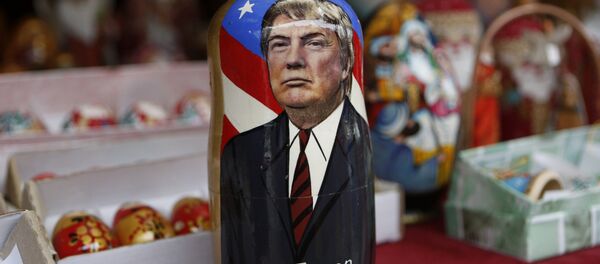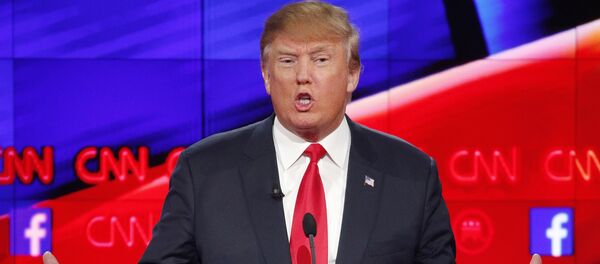WASHINGTON (Sputnik) — Clinton had been leading Trump in pre-election polls throughout the entire scandal-ridden campaign and debate continues to rage as to how he pulled off one of the biggest election upsets in US modern history.
Trump's Unlikely Victory
Despite a rocky relationship between the candidates during the 2016 campaign, Trump in his election night speech praised Clinton for hard work and her outstanding service to the United States. He also pledged to become a president for all Americans and unify the country.
"Now it's time for America to bind the wounds of division," Trump stated. "To all Republicans and Democrats and independents across this nation, I say it is time for us to come together as one united people."
Hillary Clinton conceded the election to Donald Trump, but expressed her disappointment after losing the race.
"I know how disappointed you feel, because I feel it too," Clinton told her supporters when delivering her concession speech on November 9. "And so do tens of millions of Americans who invested their hopes and dreams in this effort."
Trump’s victory received mixed reaction among Americans and sparked debates over the reasons of the outcome that few polls and experts could predict.
The impact of the media and polling results on the outcome of the 2016 presidential election has been widely examined by American and international experts after November 8.
Ultimately, US voters made a choice completely opposite to the one predicted by the majority of the mainstream media.
"The fact is that in most of the important states the election was not set for Hillary Clinton, she was in the lead but it was well within a margin of error that Trump could win instead. And he did win," Gina Yannitell Reinhardt from the Department of Government at the University of Essex told Sputnik.
So from a statistical probability perspective Trump’s victory should not have been so shocking, Reinhardt said, but nevertheless it was.
"Part of what we are feeling right now and we think as shocking is just that people believed that the person leading in the polls would win," Reinhardt added.
Several experts have concluded that US public distrust in the mainstream media (MSM) was so great that the more they attacked Trump during the presidential election, the more his credibility and popularity grew.
"One of the reasons Trump won was that the more the mainstream media reviled him, the more support he gained: if the liars accuse him of something, he must be innocent of it," retired Canadian diplomat Patrick Armstrong told Sputnik.
Clinton Email Probe
The scandal elated to Clinton’s use of a private email server when she served as secretary of state became a major focus of the campaign for both the media and the Trump camp.
US presidential candidate Donald Trump immediately commented on Clinton’s trustworthiness and fitness for the Oval Office. He argued that the former secretary of state should not be allowed to run for president and that she should be prosecuted.
According to experts, the timing of the announcement contributed to Clinton’s failure in the election and may have especially hurt her among white educated voters.
"I think Comey’s letter really hurt Clinton a lot because she was closing out the campaign on a very positive note," California State University Los Angeles professor Raphael Sonenshein told Sputnik. "It was devastating."
Following the announcement of the reopening of the federal investigation, Clinton’s advantage in polls shrunk and struggled to maintain her lead down the stretch.
Hacking Hysteria
The fear that Russia might hack US voting machines prompted authorities to take extra measures to ensure the resilience of the country’s election system to cyber threats.
"It is extraordinary unlikely that the recent cyberattacks could affect the outcome of the [US] elections," former US Assistant Attorney General John Carlin told Sputnik in less than two weeks before the election. "This is more an attempt to undermine people’s confidence than there is a realistic prospect of actually affecting the outcome."
Some US political leaders argued that the Obama administration failed to provide clear evidence of Russian interference.
"At this point, I don’t think the case has been proven that Russia is involved in a big way in manipulating our election through hacking," US Congressman Dana Rohrabacher told Sputnik.
Russian President Vladimir Putin said the charges were an attempt to distract American voters from domestic issues while Foreign Minister Sergey Lavrov called them a hysterical election-year campaign tactic.
Media Bias
Trump frequently addressed the fact that the most influential media outlets — such as CNN, MSNBC, The New York Times, and the Washington Post — teamed up to help Clinton. He repeatedly claimed that the media was trying to uncover controversial facts from his past.
"It appears that even though Trump is a member of the elite, it is obvious that the corporate media are shilling for Hillary Clinton who has proven credentials of being a tool of the war machine and Wall Street," Cindy Sheehan, one of the leading anti-war activists in the United States, told Sputnik.
Most of the negative comments about Trump came from his controversial ideas along with unexpected and offensive public remarks. Early in October, The Washington Post published a 2005 video in which the businessman-turned-reality-TV star made vulgar remarks about women. The release of the tape rocked Trump’s campaign and led to a split in the Republican Party.
Several high-ranking Republicans publicly distanced themselves from Trump, including US House of Representatives Speaker Paul Ryan, who said he was sickened by what Trump said.
Trump admitted that his behavior was unacceptable and publicly apologized for the remarks which he later called "locker-room talk". Clinton used the scandal to remind American voters of the real estate mogul’s previous controversial comments.
"It’s not only women, and it’s not only this video that raises questions about his fitness to be our president, because he has also targeted immigrants, African-Americans, Latinos, people with disabilities, POWs [prisoners of war], Muslims, and so many others," Clinton argued.
Ironically, numerous polls indicated that while Clinton won the female vote overall, Trump beat her among women who were white.
"Both campaigns concluded that their candidate was so disliked by the public they had a much harder sales job getting to talking about issues," George Washington University Political Management Professor Christopher Arterton told Sputnik.
Trump's 61% unfavorable score is the worst in presidential polling history with Clinton's 52% rating coming in as the second worst, according to a Gallup poll conducted from Nov 2-5. The organization has tracked candidate favorability ratings in every presidential contest since 1956.

